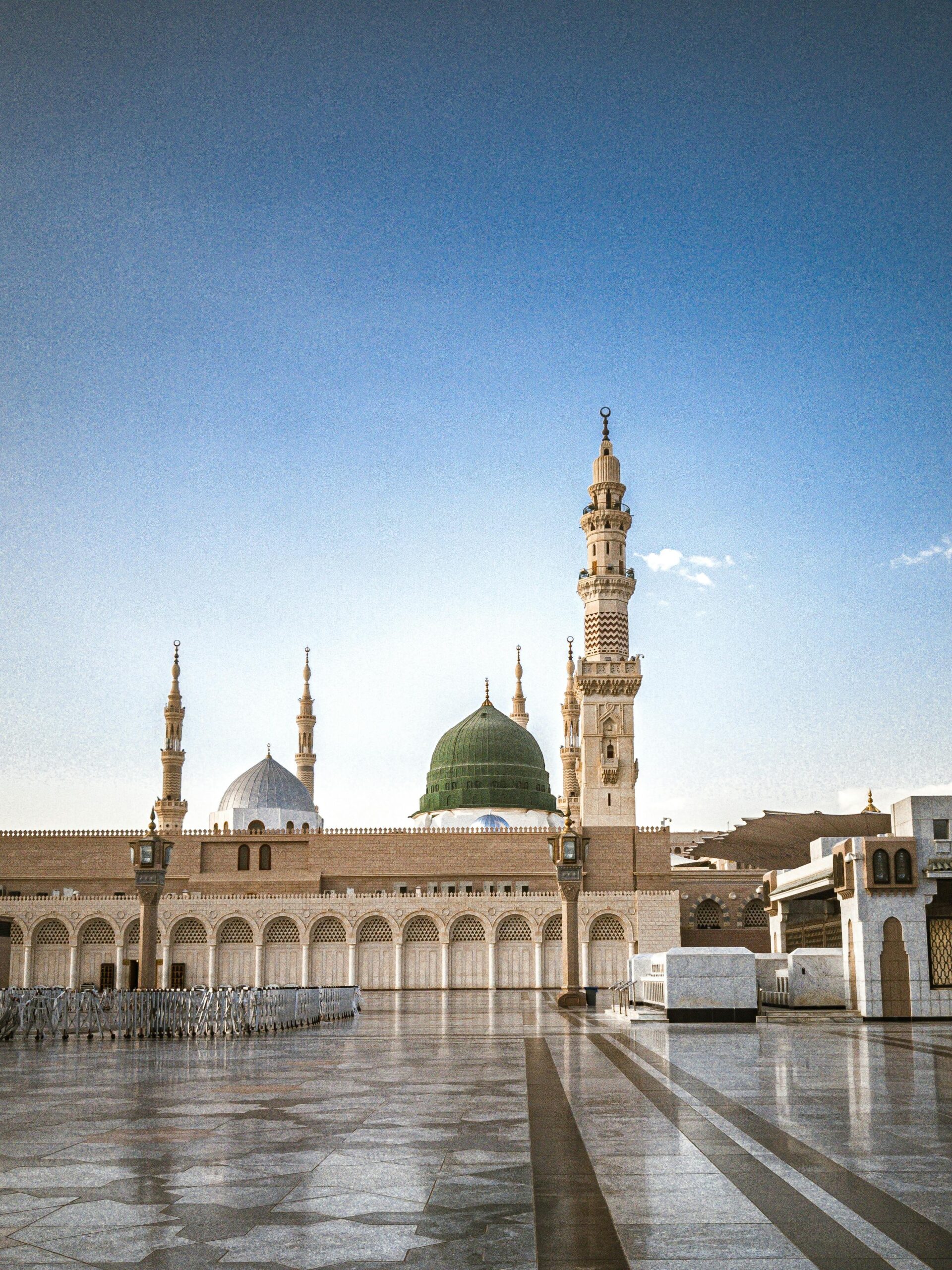Prophet Muhammad (PBUH) is the central figure of Islam, revered as the last prophet sent by
God (Allah) to guide humanity. His life, spanning the late 6th and early 7th centuries CE in
Mecca and Medina, Arabia, is a rich tapestry woven with themes of revelation, struggle, and the
establishment of a new faith.
Born into a merchant family, Muhammad (PBUH) was orphaned young and raised by his
grandfather and uncle. He was known for his honesty, trustworthiness, and compassion, earning
him the nickname “Al-Sadiq” (the truthful). In his forties, while meditating in a cave outside
Mecca, he received the first revelation from God through the Angel Gabriel. This marked the
beginning of his prophethood.
The message Muhammad (PBUH) preached was one of strict monotheism, rejecting the
prevalent polytheism of Mecca. He emphasized social justice, helping the poor and the
oppressed. His teachings also focused on moral values, good deeds, and worshipping one God,
Allah.
The Meccan elite, threatened by his message that challenged the status quo, fiercely opposed
him. For thirteen years, Muslims faced persecution and ridicule. Despite the hardships,
Muhammad (PBUH) remained steadfast in his mission.
A pivotal moment came in 622 CE with the Night Journey (Israa wal Miraaj). According to
Islamic tradition, Muhammad (PBUH) was miraculously transported from Mecca to Jerusalem
and ascended to the heavens, where he received further guidance and witnessed the wonders of
creation.
Soon after, facing increasing persecution, Muhammad (PBUH) and his followers migrated
(Hijra) to Medina, marking the beginning of the Islamic community. In Medina, he established
the first mosque and formed a social and political pact with the local Jewish and pagan tribes,
known as the Constitution of Medina. This document laid the foundation for a multi-faith society
based on tolerance and justice.
The Meccans, however, did not relent. A series of battles ensued, with the Muslims ultimately
prevailing in the pivotal Battle of Badr in 624 CE and the conquest of Mecca in 630 CE.
Throughout these conflicts, Muhammad (PBUH) demonstrated remarkable leadership, courage,
and strategic brilliance.
Following the conquest of Mecca, Muhammad (PBUH) focused on consolidating Islam in
Arabia. He performed the Hajj pilgrimage, establishing its rituals for future generations. In his
final sermon, delivered during the Farewell Pilgrimage in 632 CE, he emphasized the importance
of equality, justice, and treating women with respect. Shortly after, he passed away, leaving
behind a legacy that continues to shape the lives of over 1.8 billion Muslims worldwide.
The life of Prophet Muhammad (PBUH) is a testament to perseverance, unwavering faith, and
the power of compassion. His teachings continue to guide Muslims in their daily lives and serve
as a source of inspiration for millions across the globe.

Recent Comments